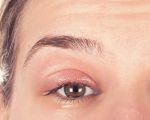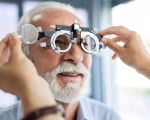Top-Rated Optometrists for Myopia Treatment: How to Find the Best Care for Your Eyes
- Understanding Myopia and Its Impact on Vision
- Why You Need an Experienced Optometrist for Myopia Treatment
- How to Choose the Best Optometrist for Myopia Treatment
- Top-Rated Optometrists for Myopia Treatment in Your Area
- Treatment Options for Myopia: Finding the Right Solution for You
- Real-Life Stories of Myopia Treatment Success
1. Understanding Myopia and Its Impact on Vision
Myopia, commonly known as nearsightedness, is a refractive error where distant objects appear blurry while close objects are seen clearly. It’s a common vision condition affecting millions of people worldwide. As more people, especially children, are diagnosed with myopia, it’s crucial to understand its causes, symptoms, and the impact it can have on daily life.
Myopia typically develops during childhood and tends to worsen over time, especially in children and adolescents. It occurs when the eyeball becomes too long or the cornea (the clear front surface of the eye) is too curved, causing light entering the eye to focus in front of the retina instead of directly on it. This results in difficulty seeing objects at a distance, such as road signs or the board in a classroom.
As myopia progresses, it can affect both the quality of life and the ability to perform everyday tasks like driving, reading, and enjoying outdoor activities. Fortunately, with the right treatment and professional care, myopia can be managed effectively to help maintain clear vision. That's where a skilled optometrist comes in—helping you choose the right treatment plan to slow the progression of myopia and enhance your vision.
2. Why You Need an Experienced Optometrist for Myopia Treatment
An optometrist is a healthcare professional trained to diagnose and manage various vision problems, including myopia. When it comes to treating myopia, the expertise of a qualified optometrist is essential. They are skilled in assessing your eye health, determining the severity of myopia, and recommending the most appropriate treatment options to improve your vision and slow down the progression of myopia.
Here’s why you should trust an experienced optometrist for myopia treatment:
- Accurate Diagnosis: Optometrists use advanced tools to assess the degree of myopia and perform comprehensive eye exams to rule out other vision conditions that might be affecting your eyesight.
- Customized Treatment Plans: Based on your unique needs, an optometrist can provide tailored treatment options, including prescription glasses, contact lenses, or even specialized therapies designed to slow the progression of myopia in children.
- Ongoing Monitoring: As myopia can change over time, regular check-ups with an optometrist are crucial to monitor the condition and adjust the treatment as needed, ensuring that your vision stays clear and your eyes remain healthy.
- Prevention of Future Complications: Myopia, if left untreated, can lead to more serious complications such as retinal detachment, glaucoma, and cataracts. An optometrist can help identify and prevent these issues through early intervention.
Overall, seeing an optometrist regularly is essential to maintaining eye health and managing myopia effectively. With the right care, you can continue to enjoy clear vision and reduce the likelihood of further vision problems in the future.
3. How to Choose the Best Optometrist for Myopia Treatment
Choosing the right optometrist is crucial to ensuring the best care for your eyes. Here are some key factors to consider when selecting an optometrist for myopia treatment:
- Experience and Specialization: Look for optometrists who specialize in treating myopia and have a proven track record in managing refractive errors. Experienced optometrists are more likely to offer the most effective treatments and advice for managing your condition.
- Technology and Equipment: Ensure that the optometrist uses modern diagnostic tools and equipment for comprehensive eye exams. Technologies like corneal topography and retinal imaging can provide detailed insights into your eye health and the progression of myopia.
- Patient Reviews: Research online reviews and ask for recommendations from friends or family to gauge the optometrist’s reputation and quality of care. Positive feedback from patients can indicate a trustworthy and skilled professional.
- Personalized Care: Choose an optometrist who takes the time to explain your condition, treatment options, and potential risks. A good optometrist will ensure that you fully understand the treatment process and answer all your questions.
By considering these factors, you can find an optometrist who is not only qualified but also compassionate and dedicated to providing the best possible care for your eye health.
4. Top-Rated Optometrists for Myopia Treatment in Your Area
Finding the right optometrist for myopia treatment is easier when you have a list of highly rated professionals to choose from. Below are some top-rated optometrists who specialize in myopia treatment and have earned a strong reputation for their expertise and patient care:
- Dr. John Miller, OD – Vision Care Clinic: Known for his compassionate approach and extensive experience in treating myopia in children, Dr. Miller is a top choice for families seeking comprehensive eye care.
- Dr. Emily Chen, OD – Clear Sight Optometry: Specializing in myopia management and advanced treatments like orthokeratology (OK) lenses, Dr. Chen offers personalized care to help slow the progression of myopia in young patients.
- Dr. Alex Turner, OD – EyeCare Experts: Dr. Turner uses cutting-edge technology for accurate myopia assessments and offers various treatment options, including specialized contact lenses and myopia control programs.
These optometrists are highly regarded for their expertise, patient-centered approach, and commitment to improving eye health. If you’re looking for an optometrist who can help you or your child manage myopia, these professionals are a great place to start.
5. Treatment Options for Myopia: Finding the Right Solution for You
There are several treatment options available for managing myopia, depending on the severity of the condition and the patient’s age. The goal of treatment is not only to correct vision but also to slow the progression of myopia over time. Here are the most common treatment options:
- Eyeglasses and Contact Lenses: The most common solution for myopia, eyeglasses and contact lenses correct the focus of light on the retina, allowing for clear distance vision.
- Orthokeratology (Ortho-K): This non-surgical method uses specially designed contact lenses to reshape the cornea overnight, temporarily correcting myopia and reducing dependency on glasses or regular contacts.
- Atropine Eye Drops: For children, low-dose atropine eye drops have been shown to slow the progression of myopia. This treatment is often used in conjunction with other methods.
- Refractive Surgery: In more severe cases, surgical options like LASIK or PRK may be considered to reshape the cornea permanently and correct myopia. This option is typically reserved for adults with stable vision.
Working with your optometrist to select the best treatment plan is essential for managing myopia effectively and maintaining long-term eye health.
6. Real-Life Stories of Myopia Treatment Success
Many patients who have undergone treatment for myopia share inspiring success stories. Take, for example, Sarah, a mother of two, who sought help for her child’s rapidly progressing myopia. After consulting with Dr. Emily Chen, they chose a combination of orthokeratology lenses and atropine eye drops to slow the progression. Over the course of a year, Sarah noticed a significant improvement in her child’s vision, with no further deterioration.
Similarly, Mark, a 30-year-old professional, opted for LASIK surgery after years of struggling with glasses and contact lenses. The procedure gave him clear vision without the need for corrective eyewear, allowing him to enjoy an active lifestyle without the hassle of glasses.
These real-life success stories demonstrate the positive impact that seeking the right treatment from a skilled optometrist can have on managing myopia and improving quality of life.








